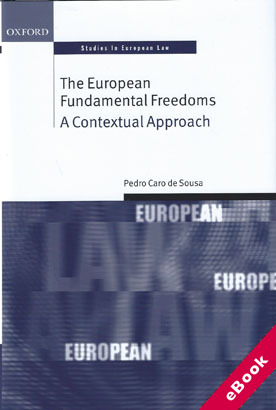
The device(s) you use to access the eBook content must be authorized with an Adobe ID before you download the product otherwise it will fail to register correctly.
For further information see https://www.wildy.com/ebook-formats
Once the order is confirmed an automated e-mail will be sent to you to allow you to download the eBook.
All eBooks are supplied firm sale and cannot be returned. If you believe there is a fault with your eBook then contact us on ebooks@wildy.com and we will help in resolving the issue. This does not affect your statutory rights.
Law can be looked at from both an internal legal perspective - reflected in the official discourse supporting legal decisions - and an external perspective - which is pursued by studies that look at the law from the outside as the subject of sociological, economic, or philosophical analysis.
This external dimension - related to extra-legal factors that impact the law, such as the institutional environment in which the law is applied - is usually ignored, or not addressed systematically by studies that focus on the internal perspective.
By systematically internalizing these 'external' elements into legal theory and practice, contextual approaches lead to the development of better descriptive theories and more attractive normative models of the law, and specifically EU law, than de-contextualized approaches allow for.
Additionally, contextual approaches are more self-aware than de-contextualized approaches, since they are able to make sense of the role that legal practice (by judges, legal practitioners, and academics) plays in the development of the law. It is through a contextual approach that Pedro Caro de Sousa develops a general theory of European constitutional law, in particular free movement law and the EU fundamental freedoms.
As a contribution to the development of EU constitutionalism, this monograph focuses on the interplay between the different normative concerns behind the EU's market freedoms identified in traditional legal discourse and the various extra-legal and institutional factors that affect how that law is applied and develops in practice.
Moving away from traditional studies of free movement law, Caro de Sousa's book offers a fresh approach to free movement law. Rather than proposing normative approaches, he uses this approach to construct a broader thesis: that the EU law of free movement can best be understood as interplay of traditional legal doctrines and practices and the specific institutional environment where this law is applied and developed.